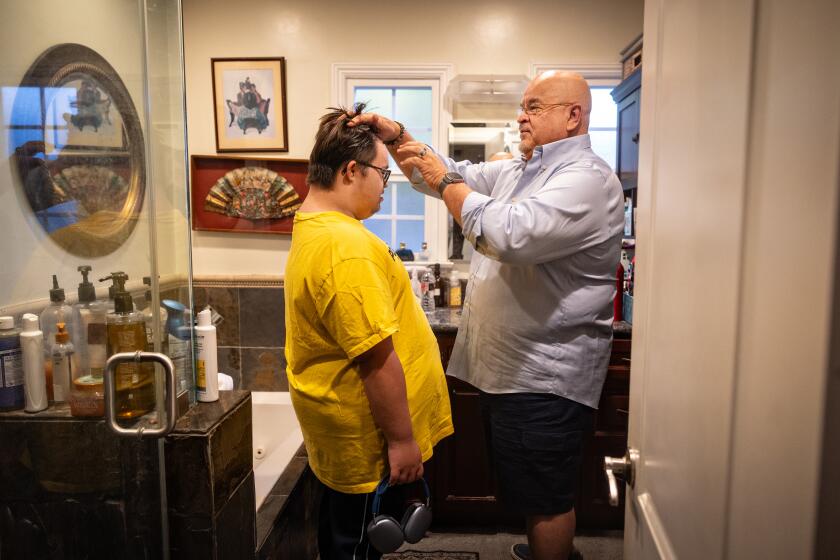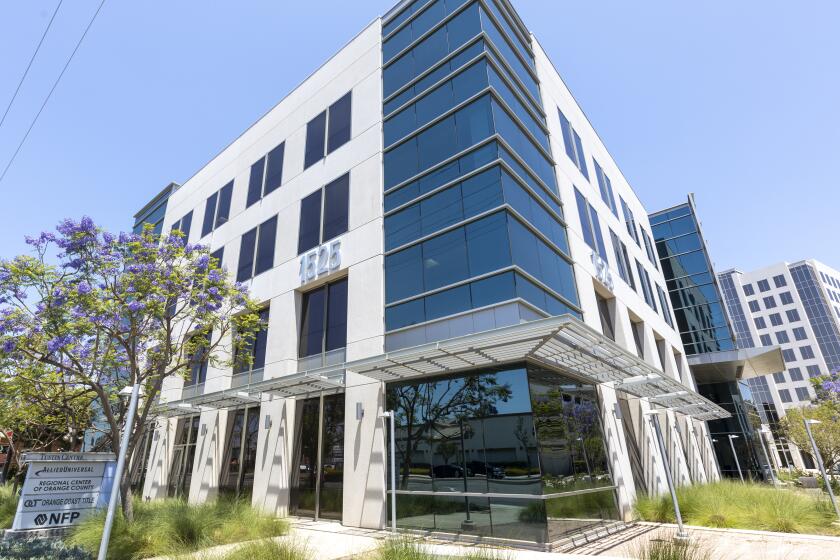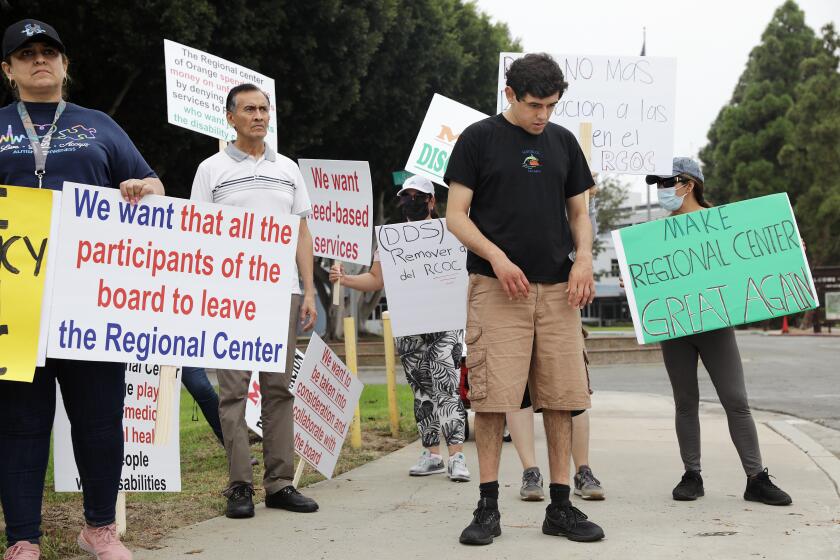State’s disability centers should abide by Public Records Act

- Share via
The 21 nonprofits that serve Californians with developmental disabilities are secretive about their decision-making processes. They hold tight to desk manuals and other documents and data that could shed light on serious problems, including service disparities depending on neighborhood or race.
That lack of transparency could be solved in part if the nonprofits become subject to the Public Records Act, which requires that state agencies make their documents available to the public when asked, with few exceptions. Assembly Bill 1147 would make that happen. Gov. Gavin Newsom should sign it.
Nearly $1 billion allocated for services for Californians with disabilities was ultimately returned to the state, even as some disabled people said they needed more help.
At issue are regional centers — nonprofit organizations created by state law, operating with public funds to perform a public task: coordinate services to protect their clients’ rights to make their own decisions and live as independently as possible.
About 400,000 Californians currently receive regional center services that enable them to live independently or in support networks that may include family, clinicians and professional advisors. Those eligible have serious disabilities that originated before adulthood, including epilepsy, autism, intellectual disability and cerebral palsy. Before the Lanterman Act was adopted in 1969, they would have been left with little or no assistance — or rights.
Developmentally disabled Californians get different levels of service and self-determination depending on where they live and the color of their skin. Current legislation to promote equity could help.
The regional centers have had problems. Reports going back more than a decade have found that the quality of services still depends largely on the time and effort that families can spend navigating the bureaucracy. A 2022 state audit found insufficient staff and funding and inadequate data collection and analysis. The Little Hoover Commission conducted a series of hearings and in 2023 issued recommendations to improve service delivery and transparency.
Assemblymember Dawn Addis (D-Morro Bay) responded with AB 1147. An earlier version of this good bill would have provided a broad range of badly needed reforms to make the system more equitable, transparent and accountable. Most of the reforms in the bill evaporated in the face of a very tight budget.
The Public Records Act portion remains, and it’s a worthy reform on its own. It would make clear that regional centers’ data and documents belong to the public and must be disclosed within reasonable time limits at the public’s request.
To ease the state deficit, Gov. Gavin Newsom wants to trim funding for some agencies, including the one that provides services for Californians with autism.
The centers’ administrators might prefer to think of themselves as operating private businesses, but the centers are creatures of the state and should be subject to state disclosure. They argue that it will cost each of the 21 centers about $1 million a year just to hire enough staff to comply with disclosure requirements.
While it’s true that answering data requests sometimes takes time and effort, bill proponents argue that the costs would be much lower. And it’s noteworthy that a Times analysis found that the network of centers left nearly $1 billion unspent in the 2021-22 fiscal year.
Latinos have remained underrepresented in a California program that has been lauded for giving people with disabilities more freedom to decide what they need.
In any case, if the records belong to the public — as they should, given that the centers are using the public’s money to do public work — the centers must make them available. Some documents, like desk manuals, could easily bypass any costly request process if they are simply posted on the state Department of Disability website.
More reform to the state’s disability bureaucracy is warranted and will come in better budget times. For now, both houses of the Legislature agree that public records disclosure is an important step forward. Newsom ought to appreciate that the biggest budget-busting portions of the bill are on hold, and that agencies providing state services should be subject to state disclosure laws.
More to Read
A cure for the common opinion
Get thought-provoking perspectives with our weekly newsletter.
You may occasionally receive promotional content from the Los Angeles Times.










